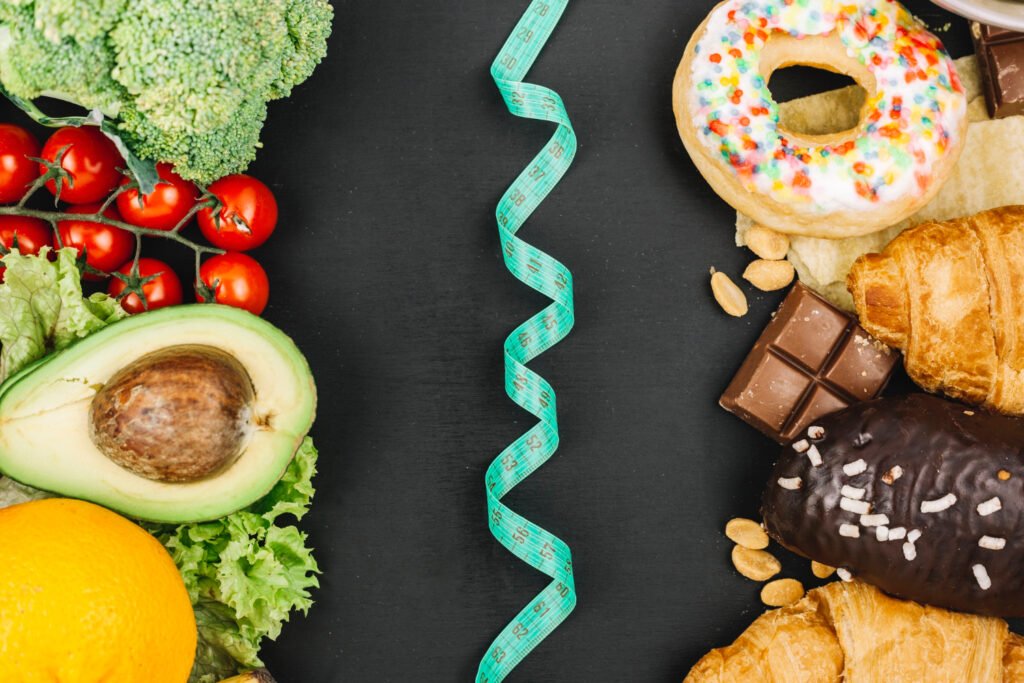This website may contain affiliate links. If you make a purchase through these links, I may earn a commission at no extra cost to you. Thank you for supporting this site.
Welcome to our comprehensive guide to achieving freedom weight loss! In this blog post, we’ll delve into the principles of freedom weight loss and provide you with practical strategies, insights, and resources to embark on a journey towards a healthier, happier you. Whether you’re looking to shed a few pounds, improve your relationship with food, or cultivate a more positive mindset, we’re here to support you every step of the way. Let’s explore how embracing freedom in your weight loss journey can lead to sustainable, empowering results.
Table of Contents
Define the Concept of “Freedom Weight Loss”
Freedom weight loss goes beyond just shedding pounds; it encapsulates the idea of breaking free from restrictive diets, negative self-talk, and unsustainable approaches. It’s about reclaiming control over your health and well-being in a way that feels empowering and liberating.
Importance of Achieving Weight Loss with Freedom
Many traditional weight loss methods focus solely on calorie counting or strict meal plans, often leading to feelings of deprivation and frustration. However, by approaching weight loss with a mindset of freedom, you can create sustainable habits that nourish both your body and your soul.
Preview of the Article’s Content
Throughout this guide, we’ll delve into various aspects of freedom weight loss, including the role of mindset, building healthy habits, nutrition strategies, exercise, stress management, goal-setting, and more. By the end, you’ll have a roadmap to not only lose weight but also experience a newfound sense of freedom and empowerment in your journey towards better health.

Understanding Weight Loss
Before diving into the specifics of freedom weight loss, it’s essential to grasp the fundamentals of how weight loss occurs.
Basics of Weight Loss: Calories In vs. Calories Out
At its core, weight loss is a simple equation: calories consumed versus calories expended. When you consume fewer calories than your body needs for energy, it turns to stored fat for fuel, resulting in weight loss. However, achieving this balance requires a nuanced understanding of nutrition, physical activity, and metabolic factors.
Common Misconceptions About Weight Loss
Many people fall prey to misconceptions surrounding weight loss, such as the belief that extreme calorie restriction or fad diets are the only paths to success. In reality, these approaches often lead to short-term results followed by rebound weight gain and feelings of failure. Freedom weight loss encourages a more balanced and sustainable approach, focusing on nourishing your body rather than depriving it.
Importance of Sustainable Approaches
Sustainable weight loss is about more than just reaching a number on the scale; it’s about cultivating lifelong habits that promote health and well-being. By prioritizing nutrient-dense foods, regular physical activity, and self-care practices, you can achieve lasting results without sacrificing your quality of life.

The Connection Between Mindset and Weight Loss
The journey towards freedom weight loss is intricately intertwined with the power of mindset. Your beliefs, attitudes, and thoughts can significantly impact your ability to achieve and maintain a healthy weight.
Impact of Mindset on Weight Loss Journey
Your mindset serves as the foundation for your weight loss journey. A positive and empowered mindset can fuel your motivation, resilience, and ability to overcome challenges. Conversely, a negative mindset characterized by self-doubt, fear, or self-criticism can hinder your progress and lead to self-sabotage.
Overcoming Limiting Beliefs and Mental Barriers
Many individuals harbor limiting beliefs about their ability to lose weight or maintain a healthy lifestyle. These beliefs often stem from past experiences, societal pressures, or negative self-perceptions. However, by challenging these beliefs and adopting a growth mindset, you can break free from self-imposed limitations and unlock your full potential for success.
Cultivating a Mindset of Freedom and Empowerment
Freedom weight loss is not just about changing your body; it’s about transforming your relationship with yourself and your health. By embracing a mindset of freedom and empowerment, you can shift your focus from restriction and deprivation to abundance and self-care. This shift in perspective allows you to make choices that align with your values and support your overall well-being.

Building Healthy Habits
In the pursuit of freedom weight loss, building healthy habits is essential for long-term success. These habits serve as the cornerstone of a sustainable lifestyle that supports your health and well-being.
Importance of Habits in Weight Loss
Habits are powerful drivers of behavior, influencing everything from what we eat to how often we exercise. By establishing healthy habits, you can create a solid foundation for your weight loss journey. These habits not only contribute to physical changes but also shape your mindset and overall relationship with food and exercise.
Strategies for Forming Healthy Habits
Forming new habits requires intention, consistency, and patience. Start by identifying specific behaviors you want to change or adopt, such as incorporating more vegetables into your meals or committing to regular exercise. Break these behaviors down into manageable steps and gradually integrate them into your daily routine. Over time, these actions will become automatic, making it easier to sustain your progress.
Incorporating Exercise and Physical Activity
Exercise is a critical component of freedom weight loss, offering numerous benefits for both physical and mental health. Find activities that you enjoy and that align with your interests and preferences. Whether it’s walking, cycling, yoga, or dancing, the key is to stay active in a way that feels enjoyable and sustainable for you.
Nutrition for Freedom Weight Loss
Achieving freedom weight loss involves nourishing your body with nutrient-dense foods that support your health and well-being. By focusing on balanced nutrition and making mindful choices, you can create a sustainable eating plan that empowers you to reach your weight loss goals.
Balanced Nutrition and Weight Loss
Balanced nutrition is the foundation of freedom weight loss. Rather than adhering to restrictive diets or eliminating entire food groups, aim to include a variety of nutrient-rich foods in your diet. Focus on consuming plenty of fruits, vegetables, lean proteins, whole grains, and healthy fats to provide your body with essential nutrients while promoting satiety and satisfaction.
Tips for Mindful Eating and Portion Control
Mindful eating is a powerful tool for achieving freedom weight loss. Pay attention to your body’s hunger and fullness cues, eat slowly, and savor each bite. Practice portion control by using smaller plates, measuring serving sizes, and being mindful of portion distortion. By tuning into your body’s signals and practicing mindful eating, you can foster a healthier relationship with food and prevent overeating.
Incorporating Variety and Flexibility in Diet
Flexibility is key to sustainable weight loss. Rather than viewing certain foods as “off-limits,” embrace a flexible approach that allows for occasional indulgences while prioritizing nutrient-dense choices most of the time. Incorporate a variety of foods into your diet to ensure you’re meeting your nutritional needs and enjoying a diverse range of flavors and textures.

Exercise and Movement
Exercise plays a vital role in achieving freedom weight loss by supporting overall health, boosting metabolism, and enhancing mood and well-being. Incorporating regular physical activity into your routine not only helps you burn calories but also promotes strength, flexibility, and cardiovascular health.
Finding Enjoyable Forms of Exercise
The key to sticking with an exercise routine is to choose activities that you genuinely enjoy. Whether it’s jogging, swimming, cycling, dancing, or playing a sport, find activities that bring you joy and make you feel good. Experiment with different forms of exercise until you discover what resonates with you and fits seamlessly into your lifestyle.
Importance of Consistency and Variety
Consistency is crucial for seeing results from your exercise regimen. Aim to incorporate physical activity into your daily routine, whether it’s a structured workout at the gym, a brisk walk during your lunch break, or a yoga session before bed. Additionally, vary your workouts to prevent boredom and plateauing. Mix up your routine with different types of exercises, intensity levels, and durations to keep things fresh and challenging.
Integrating Movement into Daily Life
In addition to dedicated exercise sessions, look for opportunities to stay active throughout the day. Take the stairs instead of the elevator, walk or bike to nearby destinations instead of driving, and incorporate movement breaks into your workday. Every little bit of activity adds up and contributes to your overall calorie burn and physical fitness.

Managing Stress and Emotional Eating
Stress and emotional eating are common challenges that can derail your efforts towards freedom weight loss. Learning to manage stress effectively and address emotional eating patterns is essential for maintaining a healthy relationship with food and achieving your weight loss goals.
Connection Between Stress and Eating Habits
Stress has a profound impact on our eating habits, often leading to cravings for high-calorie, comfort foods as a coping mechanism. Additionally, stress can disrupt hormones involved in appetite regulation, leading to overeating and weight gain. Recognizing the link between stress and eating behaviors is the first step towards addressing emotional eating patterns.
Strategies for Coping with Stress
Finding healthy ways to cope with stress is key to preventing emotional eating. Experiment with stress-reducing activities such as meditation, deep breathing exercises, yoga, or spending time in nature. Engage in activities that bring you joy and relaxation, whether it’s listening to music, reading a book, or spending time with loved ones. By prioritizing self-care and stress management techniques, you can reduce the likelihood of turning to food for comfort during times of stress.
Mindfulness and Stress Management Techniques
Practicing mindfulness can help you become more aware of your emotions and eating triggers, allowing you to respond to them in a more conscious and empowered way. Instead of turning to food automatically when stressed or upset, pause and ask yourself what you truly need in that moment. Are you hungry, or are you seeking comfort, distraction, or relief from emotional discomfort? By tuning into your body and emotions, you can make more mindful choices that support your overall well-being.
Setting Realistic Goals
Setting realistic goals is crucial for success in your journey towards freedom weight loss. By establishing clear and achievable objectives, you can stay motivated, track your progress, and make meaningful strides towards a healthier lifestyle.
SMART Goal-Setting for Weight Loss
When setting goals for weight loss, it’s essential to follow the SMART criteria: Specific, Measurable, Achievable, Relevant, and Time-bound. Instead of vague statements like “lose weight,” set specific goals such as “lose 1-2 pounds per week” or “exercise for 30 minutes five days a week.” Make sure your goals are measurable so that you can track your progress and adjust your efforts accordingly. Additionally, ensure they are achievable given your current circumstances and resources, relevant to your overall health and well-being, and time-bound to provide a sense of urgency and accountability.
Celebrating Progress and Small Victories
In addition to setting larger long-term goals, it’s important to celebrate your progress and small victories along the way. Acknowledge and celebrate each milestone you reach, whether it’s losing a few pounds, sticking to your exercise routine for a month, or resisting the temptation of unhealthy foods. By recognizing your achievements, you’ll stay motivated and inspired to continue making positive changes towards freedom weight loss.
Adjusting Goals for Sustainability
As you progress on your weight loss journey, be open to adjusting your goals based on your evolving needs and circumstances. If you find that a particular goal is too challenging or unrealistic, don’t hesitate to modify it to better align with your capabilities and priorities. Remember that the ultimate goal is to adopt healthy habits that you can maintain for life, rather than pursuing short-term results at the expense of your well-being.

Overcoming Plateaus and Challenges
Plateaus and challenges are inevitable parts of the journey towards freedom weight loss. However, with the right mindset and strategies, you can navigate these obstacles and continue making progress towards your goals.
Common Obstacles in Weight Loss
Plateaus, cravings, temptation, lack of motivation, and setbacks are common challenges that individuals encounter during their weight loss journey. Understanding that these obstacles are normal and to be expected can help you approach them with resilience and determination. By acknowledging and preparing for potential challenges, you can develop effective strategies for overcoming them when they arise.
Strategies for Breaking Through Plateaus
Plateaus occur when your weight loss stalls despite your continued efforts. To break through a plateau, consider making adjustments to your diet, exercise routine, or lifestyle habits. Increase the intensity or duration of your workouts, modify your calorie intake, or try incorporating new types of exercise to shock your body out of its plateau. Additionally, focus on non-scale victories such as improved energy levels, increased strength, or better sleep quality to stay motivated and encouraged during plateaus.
Seeking Support and Staying Motivated
During challenging times, it’s important to lean on your support system for encouragement and guidance. Whether it’s friends, family, a support group, or a health coach, having a network of people who understand and empathize with your journey can provide invaluable support. Share your struggles and victories with others, seek advice when needed, and celebrate your progress together. Additionally, stay motivated by reminding yourself of your reasons for pursuing freedom weight loss and visualizing the positive outcomes that await you on the other side of challenges.
Embracing Body Positivity and Self-Love
In the pursuit of freedom weight loss, it’s essential to cultivate a mindset of body positivity and self-love. Embracing your body and treating yourself with kindness and compassion is integral to achieving lasting health and happiness.
Importance of Self-Acceptance and Body Positivity
Body positivity is about accepting and celebrating your body at any size or shape. It involves recognizing the inherent worth and beauty of your body, regardless of societal standards or external judgments. By embracing body positivity, you can cultivate a more positive relationship with yourself and your body, free from shame, guilt, and self-criticism.
Overcoming Societal Pressures
Society often perpetuates unrealistic beauty standards that can contribute to feelings of inadequacy and low self-esteem. However, it’s essential to challenge these harmful messages and redefine beauty on your own terms. Recognize that beauty comes in all shapes, sizes, and colors, and that your worth is not determined by your appearance. By rejecting societal pressures and embracing your unique beauty, you can foster a sense of empowerment and freedom in your weight loss journey.
Cultivating Self-Love and Appreciation
Self-love is the foundation of a healthy and fulfilling life. It involves treating yourself with compassion, respect, and kindness, regardless of your perceived flaws or imperfections. Practice self-care activities that nourish your mind, body, and soul, such as meditation, journaling, spending time in nature, or engaging in hobbies you love. By prioritizing self-love and self-care, you can build resilience, confidence, and inner peace that will support you on your journey towards freedom weight loss.

The Role of Sleep and Recovery
Sleep and recovery play integral roles in the journey towards freedom weight loss. Prioritizing quality sleep and allowing your body time to rest and recuperate are essential for overall health, well-being, and weight management.
Impact of Sleep Quality on Weight Loss
Quality sleep is crucial for regulating appetite hormones, metabolism, and energy levels. When you’re sleep-deprived, your body produces more ghrelin, the hunger hormone, and less leptin, the hormone that signals fullness, leading to increased appetite and cravings for high-calorie foods. Additionally, inadequate sleep can disrupt your body’s ability to metabolize carbohydrates and regulate blood sugar levels, increasing the risk of weight gain and insulin resistance.
Tips for Improving Sleep Hygiene
To optimize sleep quality, establish a consistent sleep schedule and create a relaxing bedtime routine. Minimize exposure to screens and artificial light before bed, create a comfortable sleep environment that is dark, quiet, and cool, and avoid stimulants such as caffeine and alcohol close to bedtime. Additionally, practice relaxation techniques such as deep breathing, meditation, or gentle stretching to help prepare your body and mind for sleep.
Importance of Rest and Recovery
In addition to sleep, allowing your body time to rest and recover from physical activity is essential for optimal health and weight loss. Overtraining can lead to fatigue, burnout, and increased risk of injury, hindering your progress towards your weight loss goals. Incorporate rest days into your exercise routine, prioritize activities that promote relaxation and stress reduction, and listen to your body’s signals of fatigue or pain to avoid overexertion.
Tracking Progress and Accountability
Tracking your progress and holding yourself accountable are essential components of achieving freedom weight loss. By monitoring your actions and results, you can identify areas for improvement, stay motivated, and make informed decisions to support your goals.
Methods for Tracking Weight Loss
There are various methods for tracking your weight loss progress, including keeping a food journal, recording your workouts, and monitoring your measurements. Choose a tracking method that works best for you and allows you to track both quantitative data, such as weight and measurements, and qualitative data, such as mood and energy levels. Consistently tracking your progress provides valuable insights into your habits, patterns, and progress over time.
Benefits of Accountability Partners
Having an accountability partner or support system can significantly enhance your weight loss journey. Whether it’s a friend, family member, or professional coach, accountability partners provide encouragement, motivation, and support during challenging times. Share your goals with your accountability partner, check in regularly to discuss your progress, and celebrate your successes together. Knowing that someone else is rooting for you can help keep you accountable and on track towards achieving freedom weight loss.
Adjusting Strategies Based on Results
As you track your progress, pay attention to what’s working well and what needs adjustment. If you’re not seeing the results you desire, don’t be afraid to tweak your approach. Experiment with different dietary strategies, exercise routines, or lifestyle habits to find what works best for your body and preferences. Use your tracking data to inform your decisions and make adjustments as needed to stay on course towards your weight loss goals.
Celebrating Success and Maintaining Freedom
Celebrating your successes and maintaining a sense of freedom are essential components of a sustainable weight loss journey. By acknowledging your achievements and embracing a flexible approach to health and well-being, you can foster a positive mindset and continue making progress towards your goals.
Reflecting on Achievements
Take time to reflect on your accomplishments and milestones along the way. Celebrate the progress you’ve made, whether it’s reaching a weight loss milestone, sticking to your exercise routine consistently, or overcoming a challenging obstacle. Acknowledging your achievements boosts your confidence and motivation, reinforcing your commitment to freedom weight loss.
Strategies for Long-Term Maintenance
Maintaining freedom weight loss requires a shift in mindset from short-term dieting to long-term lifestyle changes. Focus on adopting sustainable habits that you can maintain for life, such as prioritizing nutrient-dense foods, staying active, managing stress effectively, and practicing self-care. Incorporate flexibility into your lifestyle, allowing for occasional indulgences while staying mindful of your overall health and well-being.
Embracing Freedom in a Healthy Lifestyle
True freedom weight loss is about finding balance and harmony in your relationship with food, exercise, and self-care. Embrace the freedom to choose foods that nourish your body and satisfy your cravings, without guilt or restriction. Listen to your body’s hunger and fullness cues, honor your cravings in moderation, and enjoy a diverse and satisfying diet that supports your overall health and happiness.

Conclusion
Congratulations on completing this comprehensive guide to freedom weight loss! Throughout this journey, we’ve explored the transformative power of achieving weight loss with a sense of freedom and empowerment. From understanding the fundamentals of weight loss to embracing body positivity and self-love, you’ve gained valuable insights and strategies to support your health and well-being.
Summarize Key Points
Freedom weight loss is not just about reaching a certain number on the scale; it’s about cultivating a mindset of empowerment, balance, and self-acceptance. By focusing on sustainable habits, prioritizing self-care, and embracing flexibility in your approach, you can achieve lasting results while enjoying a fulfilling and joyful life.
Reinforce Importance of Freedom in Weight Loss
Freedom weight loss emphasizes the freedom to choose foods that nourish your body, activities that bring you joy, and a mindset that empowers you to overcome obstacles and embrace your unique journey. By reclaiming control over your health and well-being, you can experience true freedom in every aspect of your life.
Encourage Action Towards Goals
As you embark on your freedom weight loss journey, remember that progress is not always linear, and setbacks are a natural part of the process. Stay committed to your goals, stay resilient in the face of challenges, and celebrate every step forward along the way. With dedication, patience, and a positive mindset, you can achieve the freedom weight loss you desire and deserve.
Additional Resources and Next Steps
Congratulations on completing your journey towards freedom weight loss! As you continue on your path to better health and well-being, there are plenty of additional resources and next steps to support you along the way.
Explore Further Resources
- Books: Consider reading books on topics such as mindful eating, body positivity, and sustainable weight loss to deepen your understanding and gain new insights.
- Online Communities: Join online forums, social media groups, or virtual support communities focused on freedom weight loss to connect with like-minded individuals, share experiences, and find encouragement and accountability.
- Professional Support: Consult with a registered dietitian, certified health coach, or fitness trainer for personalized guidance and support tailored to your unique needs and goals.
Set New Goals and Challenges
- Set New Goals: Reflect on your achievements and consider setting new goals to continue challenging yourself and staying motivated on your journey.
- Try New Activities: Experiment with new forms of exercise, recipes, or self-care practices to keep things fresh and enjoyable.
- Stay Accountable: Continue tracking your progress, seeking support from accountability partners, and celebrating your successes along the way.
Stay Committed to Your Journey
- Practice Self-Compassion: Be kind to yourself and recognize that progress takes time. Embrace setbacks as learning opportunities and stay resilient in the face of challenges.
- Stay Consistent: Stay consistent with your healthy habits, even on days when motivation is low. Remember that small, consistent actions add up to significant long-term results.
- Embrace Freedom: Above all, continue embracing the principles of freedom weight loss: empowerment, balance, and self-acceptance. Trust yourself, honor your body’s needs, and enjoy the journey towards a healthier, happier you.





Pingback: Best Upper Ab Workout for Women - 5 Great Exercises to Prepare You for Summer - VitalityFitHub
Pingback: Balancing Macronutrients on Vegan Diet: A Comprehensive Guide for 2024 - VitalityFitHub